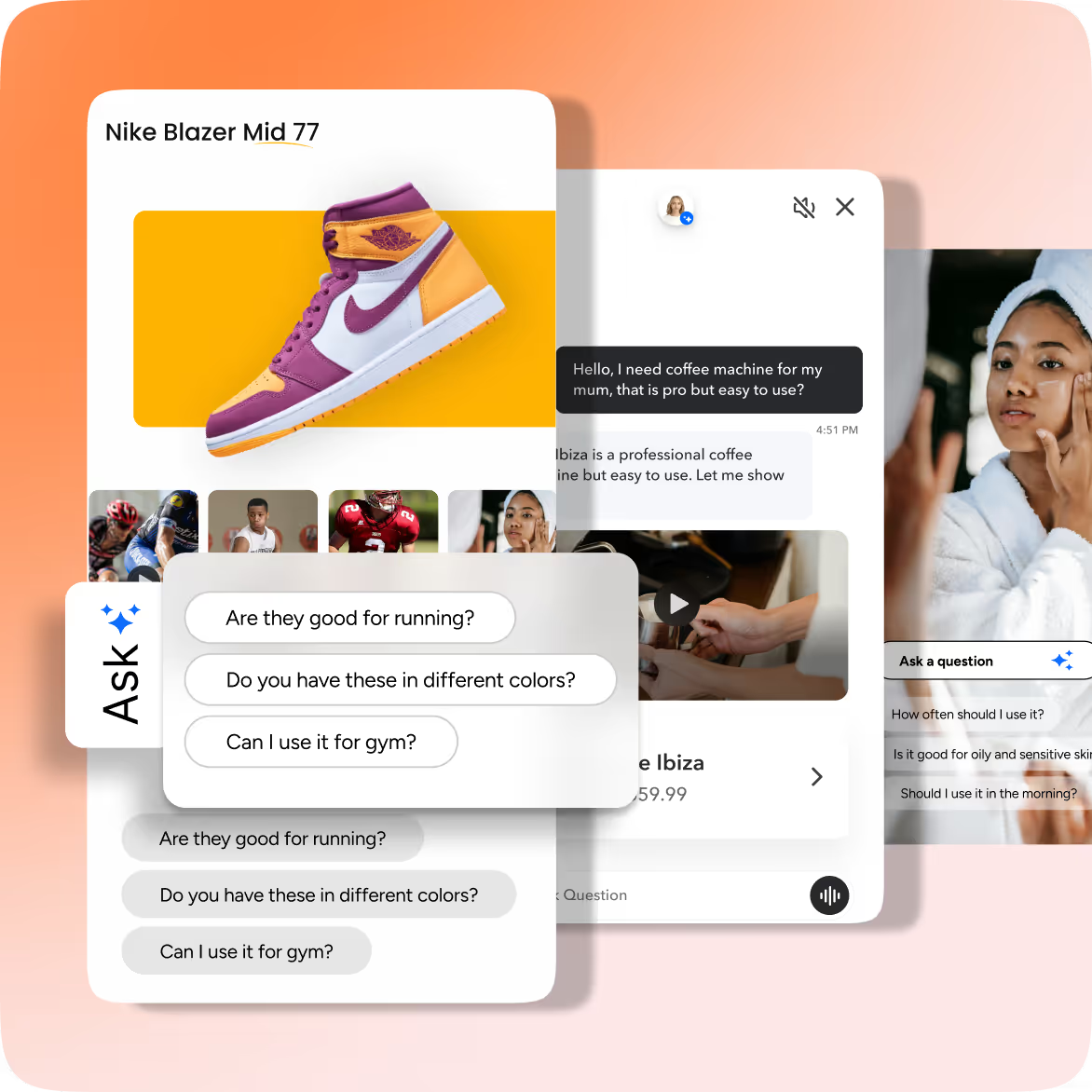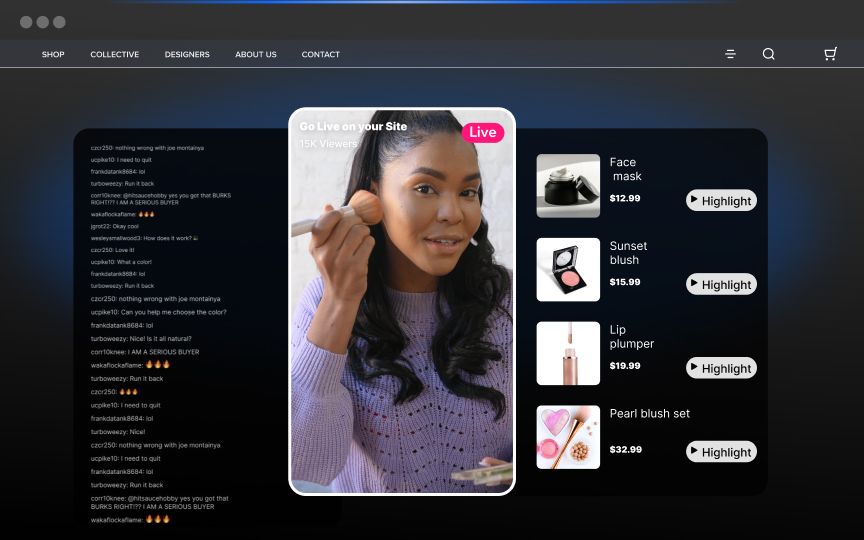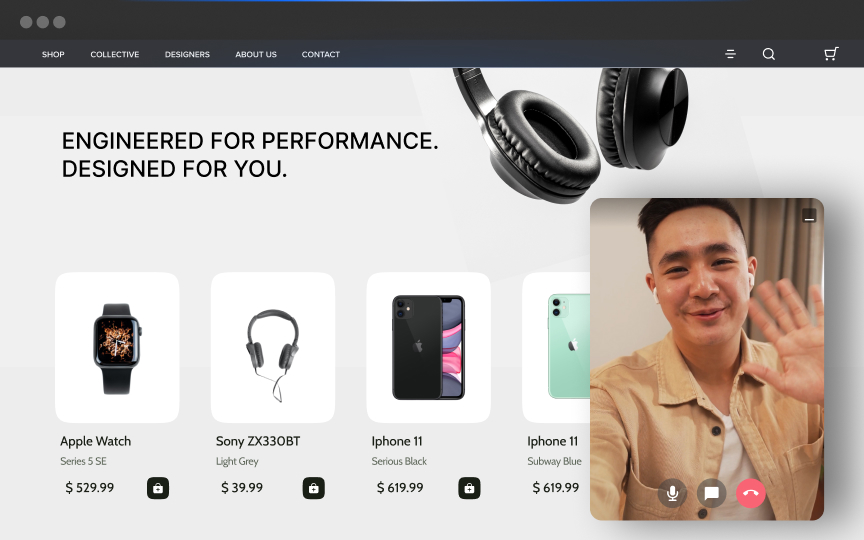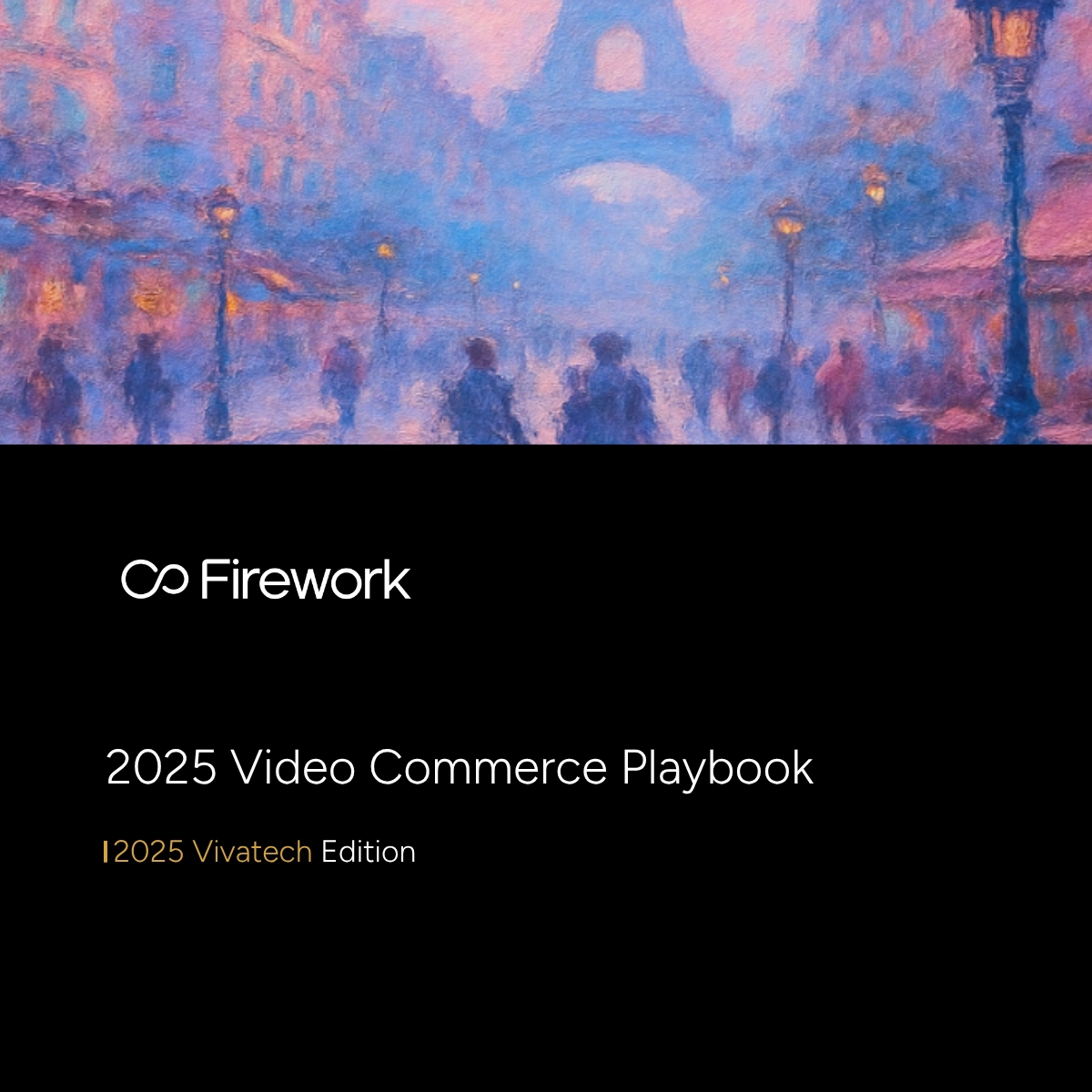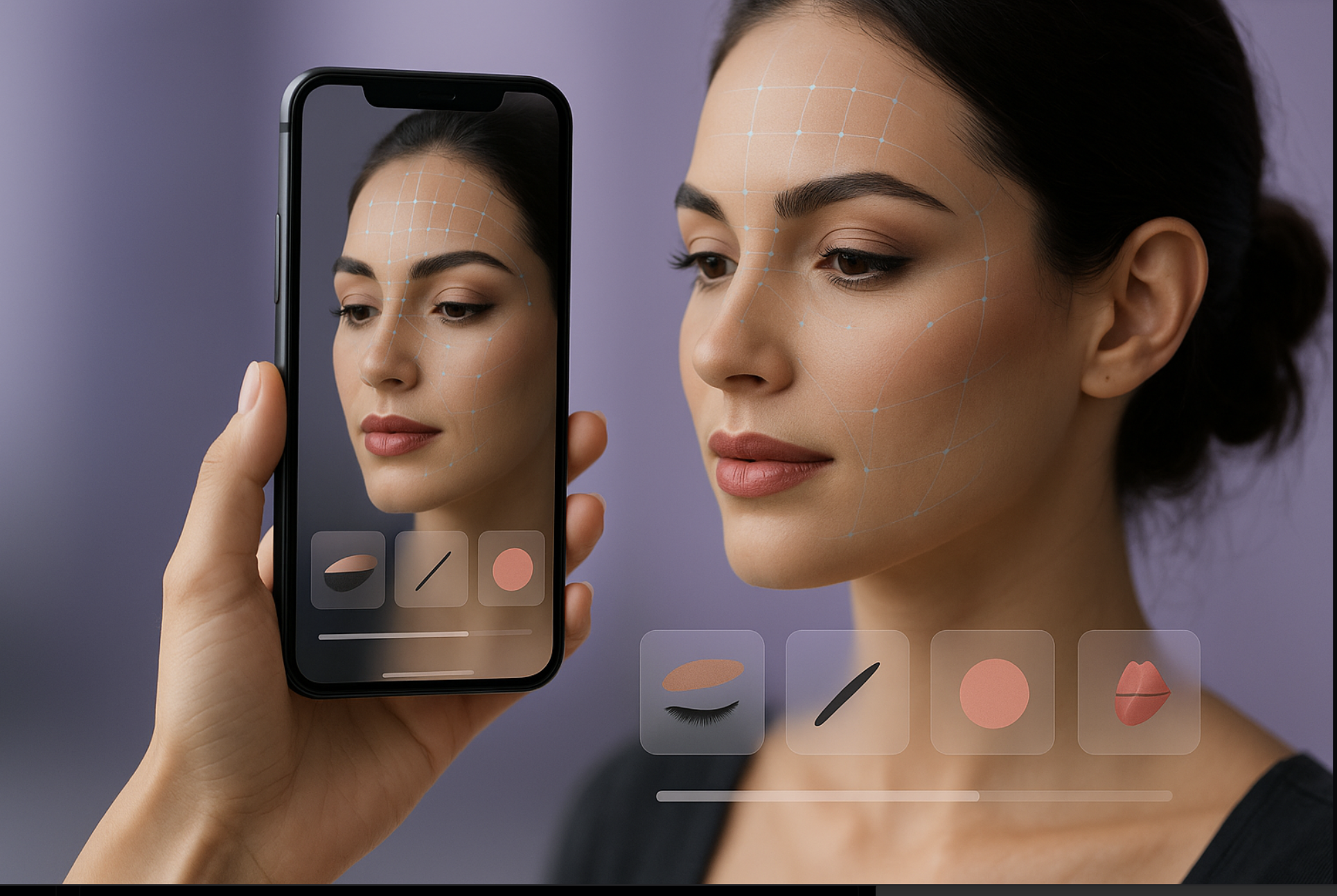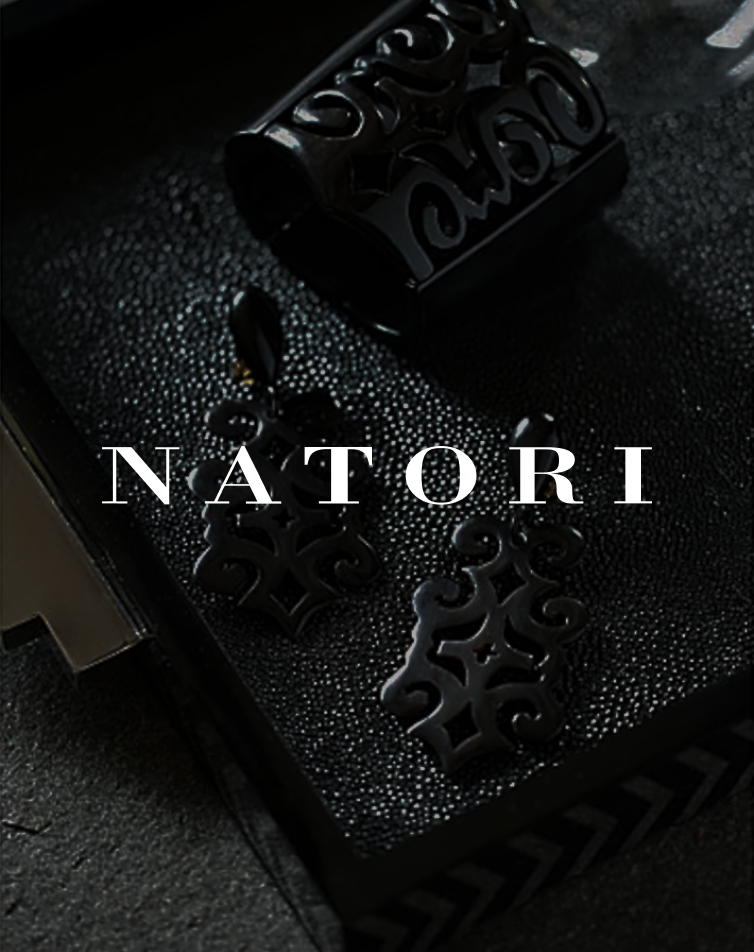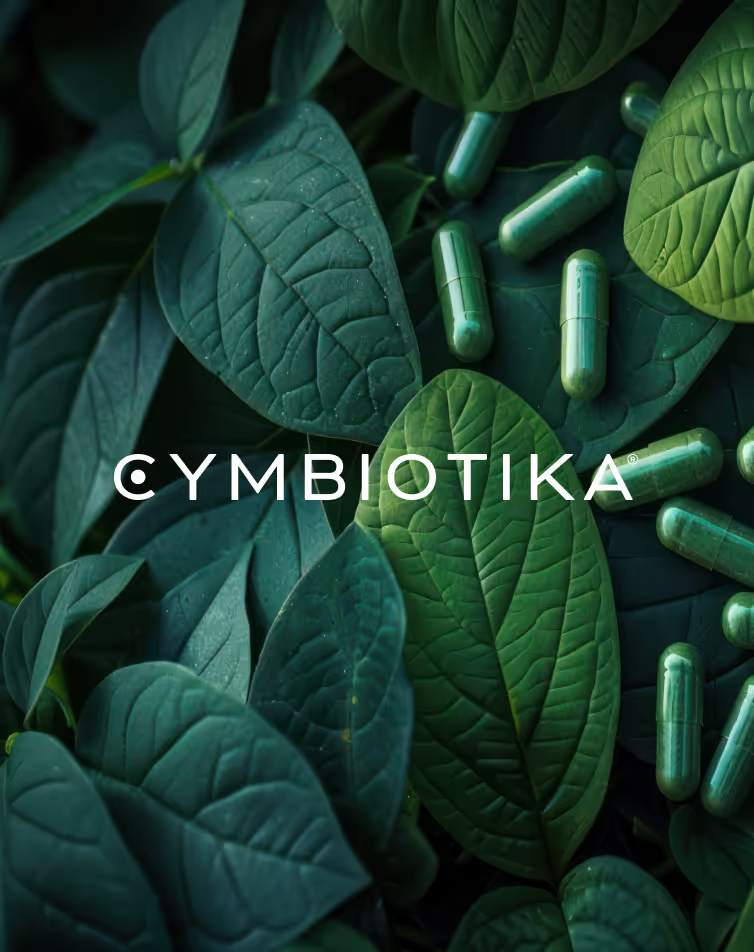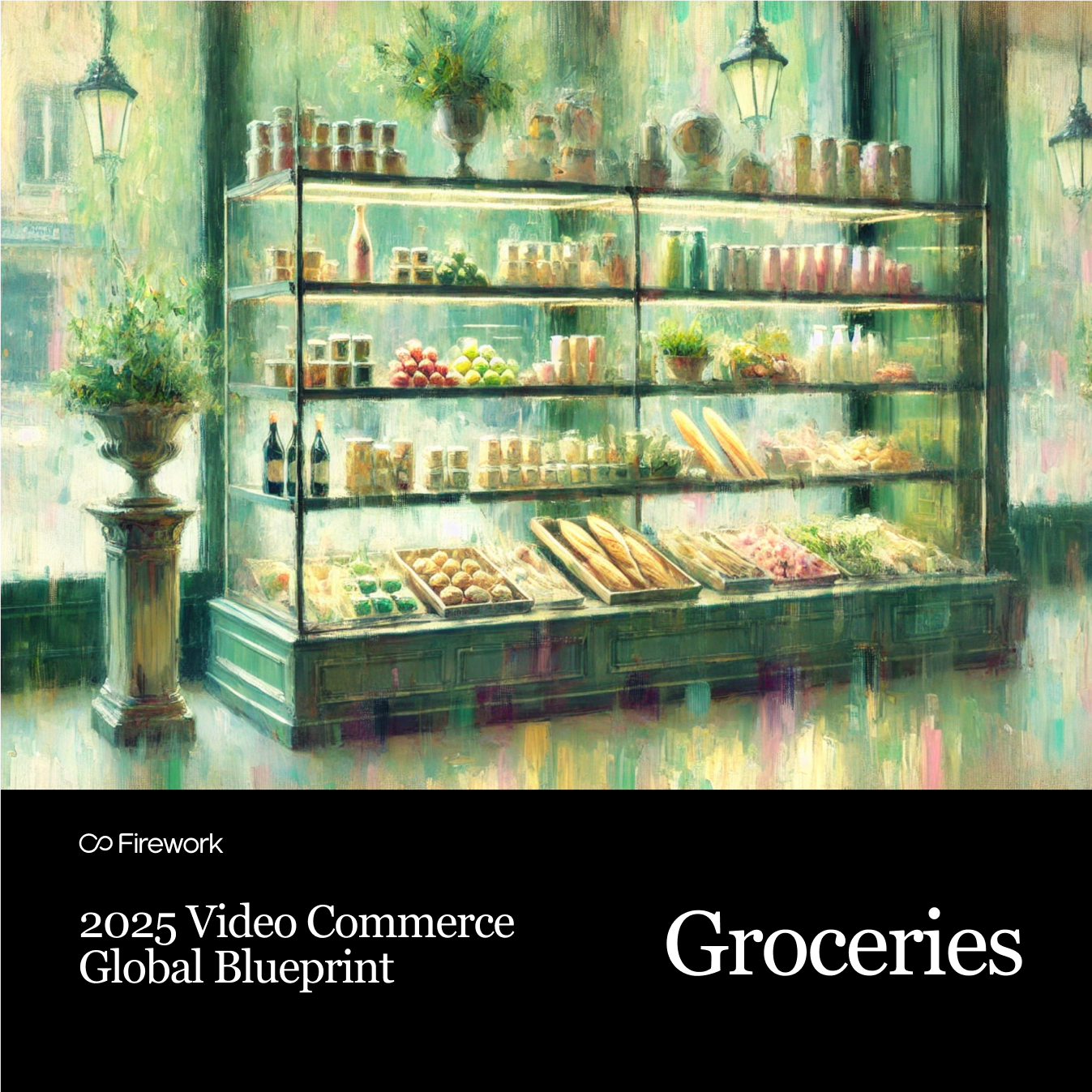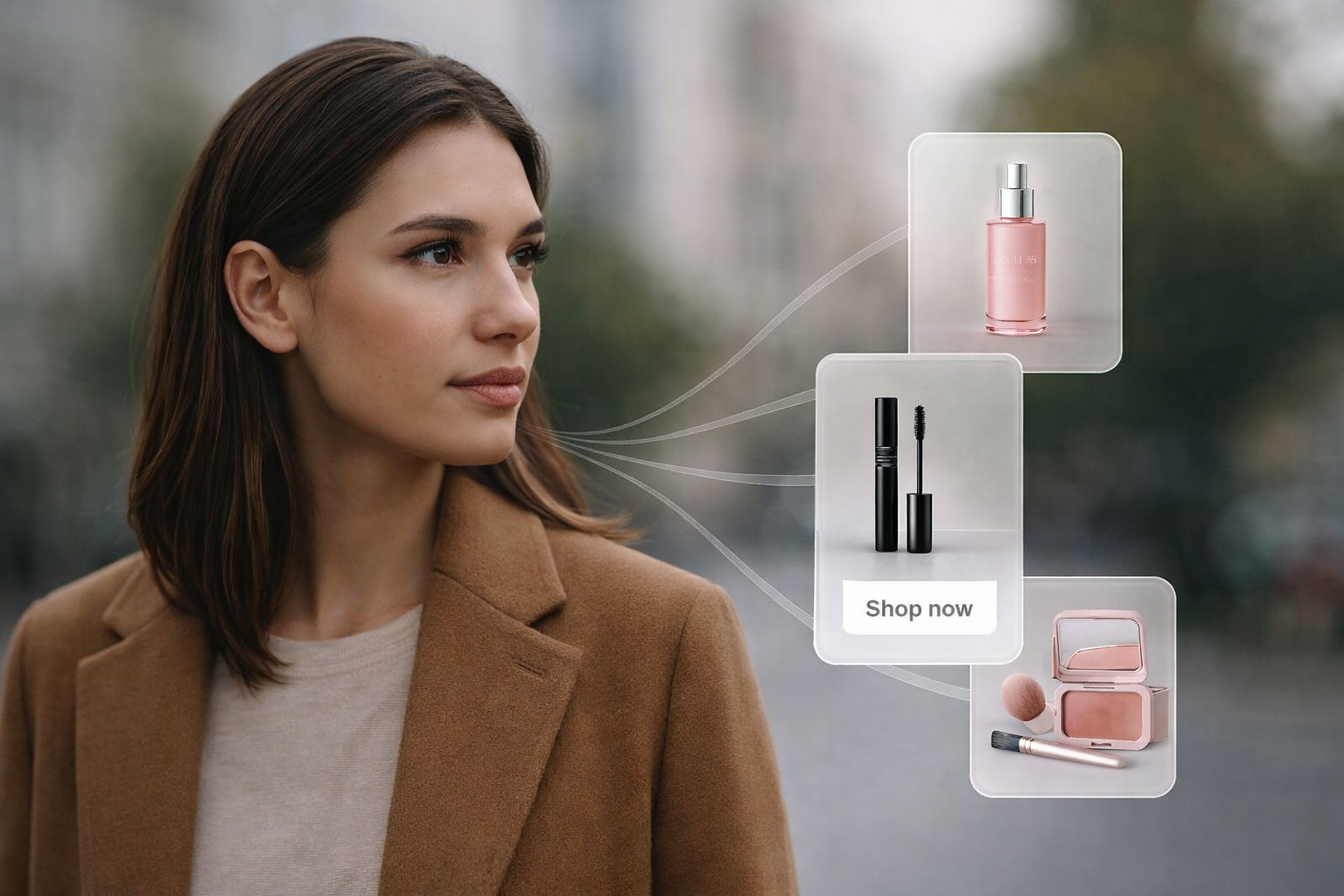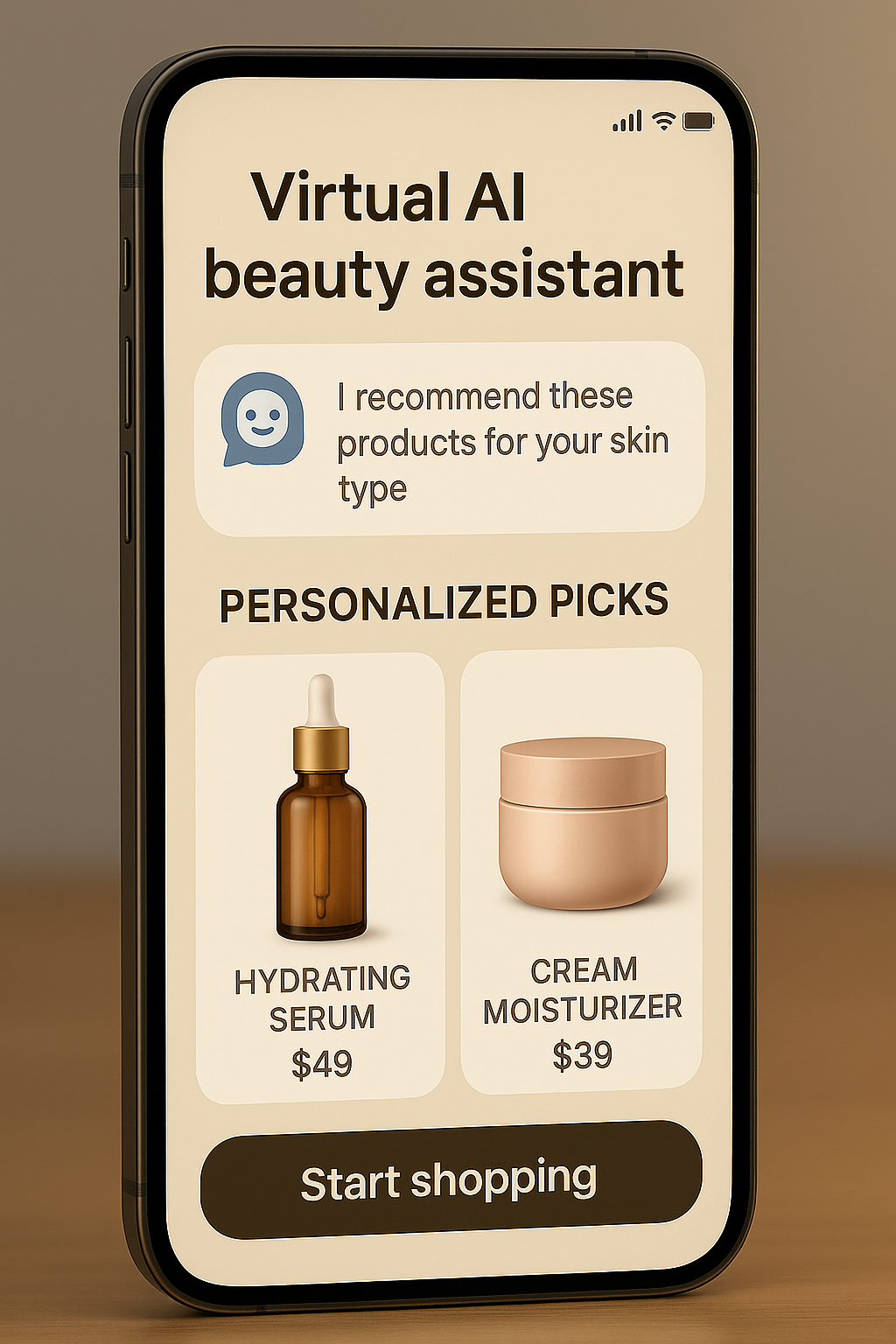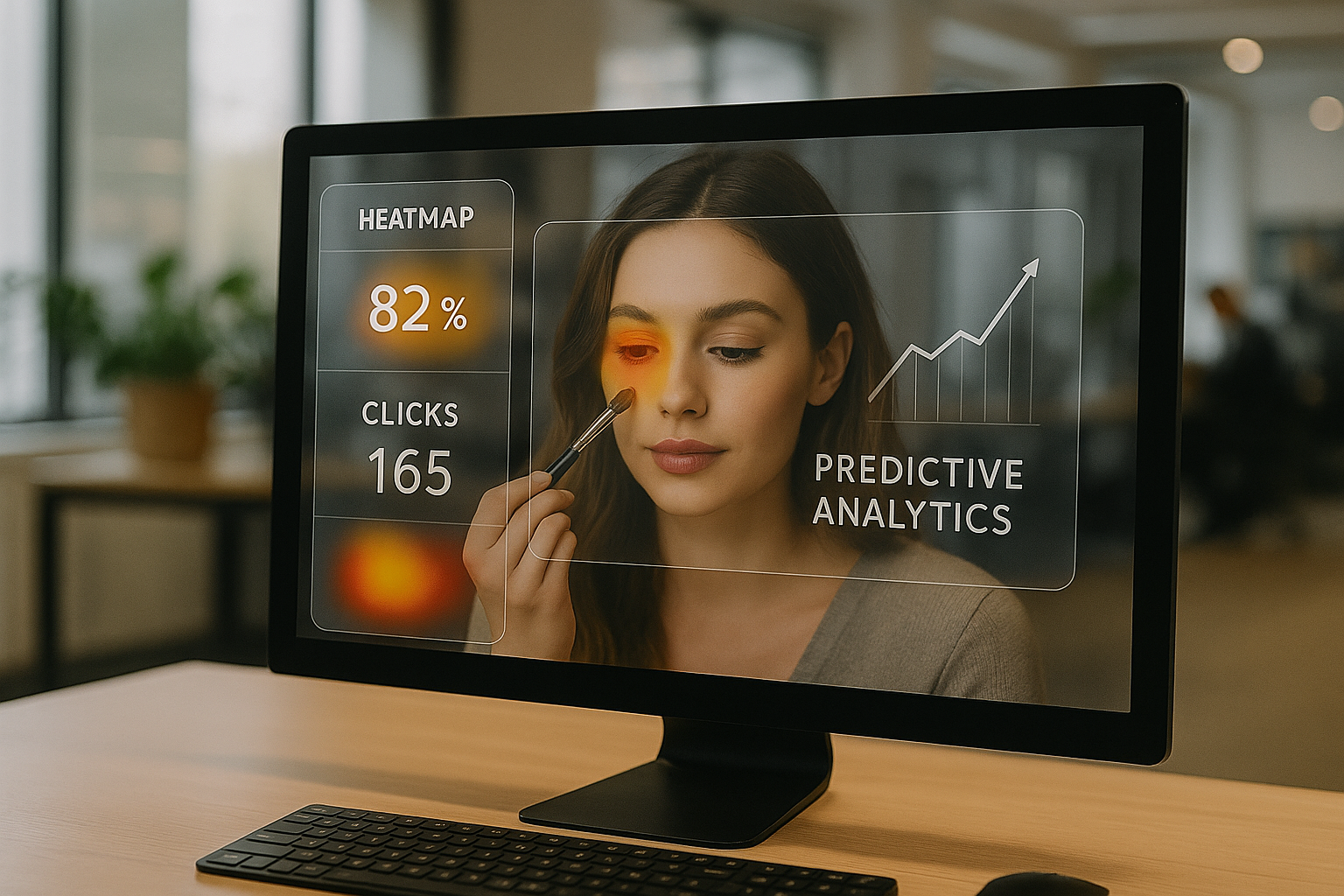AI has evolved from an experiment to a vital essential in the beauty industry. The beauty tech revenue is projected to reach $79.87 billion in 2025. Yet this shift is evident in every beauty app and smart mirror. Consumers expect brands to know their preferences instantly. With YouCam Makeup exceeding one billion downloads, the demand for personalized solutions is clear.
These tools deliver results: Virtual try-ons make purchases 2.4× more likely, while Sephora's AR mirrors boosted sales by 31%. Digital experiences now rival in-store confidence. The five cases below demonstrate how industry leaders transform AI into revenue through beauty assistants, personalization, and video commerce.
1. Perfect Corp’s AI Beauty Assistants and Hyper-Personalization
Point your camera at your face and watch as AI maps every contour, flags skin concerns, and suggests shades that actually work for you. That's the power behind Perfect Corp's YouCam experience, powered by computer-vision algorithms that completely change how we discover and test products.
This technology enables real-time virtual try-ons, allowing you to swipe through lip colors, brow shapes, or bold hair colors without messy testers. This confidence boost cuts guesswork and keeps return rates low.
Perfect Corp brings this experience in-store with smart mirrors that recognize you on approach. You seamlessly transition from mobile discovery to an interactive mirror that overlays products in high definition, directly connecting to the checkout process.
Resulting in a true omnichannel experience with every interaction feeding better data into the recommendation engine. This integration transforms casual browsing into confident buying, propelling you from "just looking" to checkout faster while delivering the personalized experience that beauty shoppers now demand.
2. Sephora’s Pocket Contour & AI Shopping Tools
Sephora takes facial recognition in a more educational direction. Ever stared at a contour palette wondering where each shade goes? Their Pocket Contour app solves that. It takes your selfie, maps your bone structure using machine learning, and then provides step-by-step contour guidance tailored to your face shape and skill level.
Sephora pairs this with AR that actually works. Open your camera and see foundations, lipsticks, or eyeshadows appear on your skin with realistic precision, powered by the same Color IQ system that matches over 10,000 skin tones.
These virtual try-ons drive serious sales. Each look comes with quick tutorials and instant product links, so you move smoothly from discovery to checkout, confident that those shades will look good in real life.
By combining precise technology with practical education, Sephora demonstrates that traditional retailers can out-innovate startups while maintaining customer loyalty through personalized experiences.

3. Olay’s Skin Advisor (AI-Powered Skin Analysis)
While makeup brands focus on immediate results, Olay takes the long view with preventive skincare intelligence. Open Skin Advisor, snap a selfie, and see exactly what's happening with your skin.
Olay combines machine learning with computer vision to analyze dozens of attributes, including texture, elasticity, pigmentation, and even the perceived age of your skin.
The platform predicts problems before they appear and creates a personalized routine that adapts as your skin changes. This mirrors the capabilities of the best skincare analysis engines, where recommendations are based on hard data rather than guesswork.
Skin Advisor also explains why each product addresses your specific concerns, creating deeper engagement and encouraging repeat visits through personalized skin analysis.
By combining decades of skin research with real-time AI, Olay demonstrates that established beauty companies can modernize quickly, transforming a simple selfie into an ongoing, valuable conversation with every customer.
4. Estée Lauder & Microsoft’s AI-Driven Product Development & Discovery
While consumer tools grab attention, some of the most powerful innovation happens behind the scenes. Estée Lauder partnered with Microsoft to create something remarkable: an AI lab that reduces product development timelines while making everything feel custom-made for each shopper.
In this virtual R&D hub, AI models evaluate countless ingredient combinations, identifying formulas likely to succeed across brands like MAC, Clinique, and Bobbi Brown.
Scientists receive real-time signals from millions of digital touchpoints, which are fed into the ConsumerIQ engine. Trending shades and skincare ingredients hit shelves when demand peaks, not after.
For customers, the same Azure system powers virtual makeup assistants across online platforms, mobile apps, and in-store smart mirrors. Take a selfie, and the assistant adjusts the lighting, maps your facial features, and recommends shades that complement your skin tone.
Try them instantly, then visit the counter where your selections await. Internally, faster formulation cycles free up budget for experimentation while data-driven merchandising ensures the right products reach the right markets at the right time.
This creates a powerful cycle: faster innovation behind the scenes and personalized discovery for shoppers, connecting consumer insights directly to product creation.
5. Jane Iredale’s AI Shade Match
Jane Iredale brings precision and ease to foundation shopping by weaving AI directly into its digital experience. With a simple selfie or live camera scan, their AI-powered matching tool analyzes your unique skin undertone, surface texture, and even compensates for tricky lighting, delivering personalized shade suggestions with remarkable accuracy.
Virtual try-on features take it a step further, overlaying recommended foundations onto your live image. Customers preview finishes, test coverage, and find their match in real time, removing the guesswork and anxiety of online beauty shopping. This smart matching recreates an in-store consultation online in seconds.
Every user interaction feeds back into the algorithm, constantly refining its recommendations and reducing mismatches. Resulting in higher satisfaction, fewer returns, and a sense of professional confidence for consumers, from makeup newcomers to seasoned beauty aficionados.
Jane Iredale’s seamless blend of AI technology and customer-centric design brings true personalization to digital beauty retail, making shade selection as intuitive and individualized as a face-to-face appointment
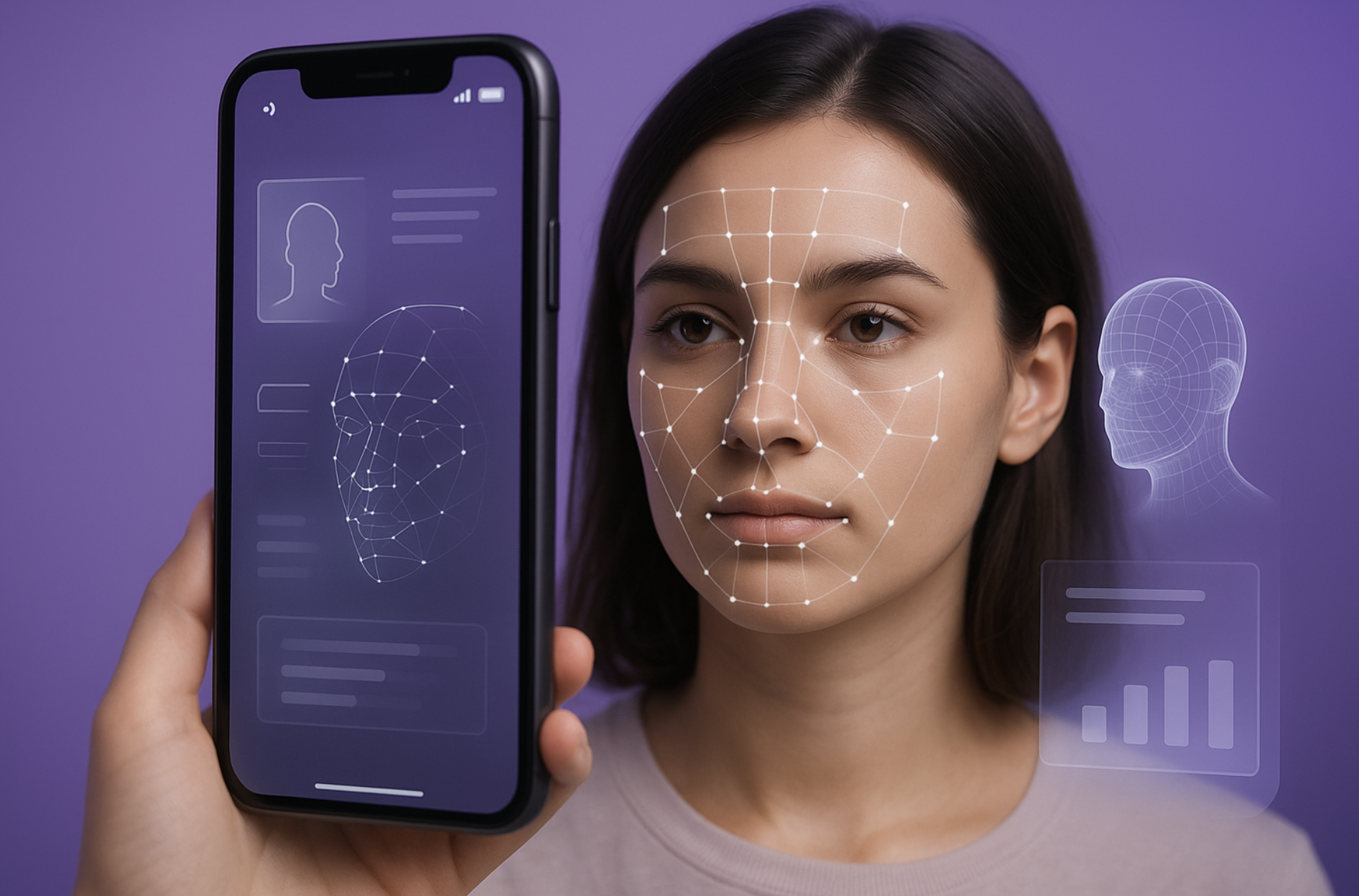
Transform Your Beauty Brand With Firework's AI-Powered Video Commerce
These five examples illustrate the evolution of AI from novelty to necessity in the beauty industry. Success comes from solving specific customer problems, shade matching, skin analysis, and product discovery. Cloud-based solutions mean even mid-sized brands can compete effectively.
Firework's intelligent video commerce platform creates personalized shopping experiences with interactive features that keep customers engaged across all touchpoints. Every interaction refines recommendations in real-time, turning casual browsers into confident buyers.
Don't let your competitors outpace you with 24/7 video showrooms and hyper-personalized experiences. Book a demo today and transform your beauty brand into an AI-powered shopping destination!
Unlock Exclusive Insights
By submitting this form, you agree to Firework's privacy policy and consent to receive personalized marketing communications. You can unsubscribe at any time.
